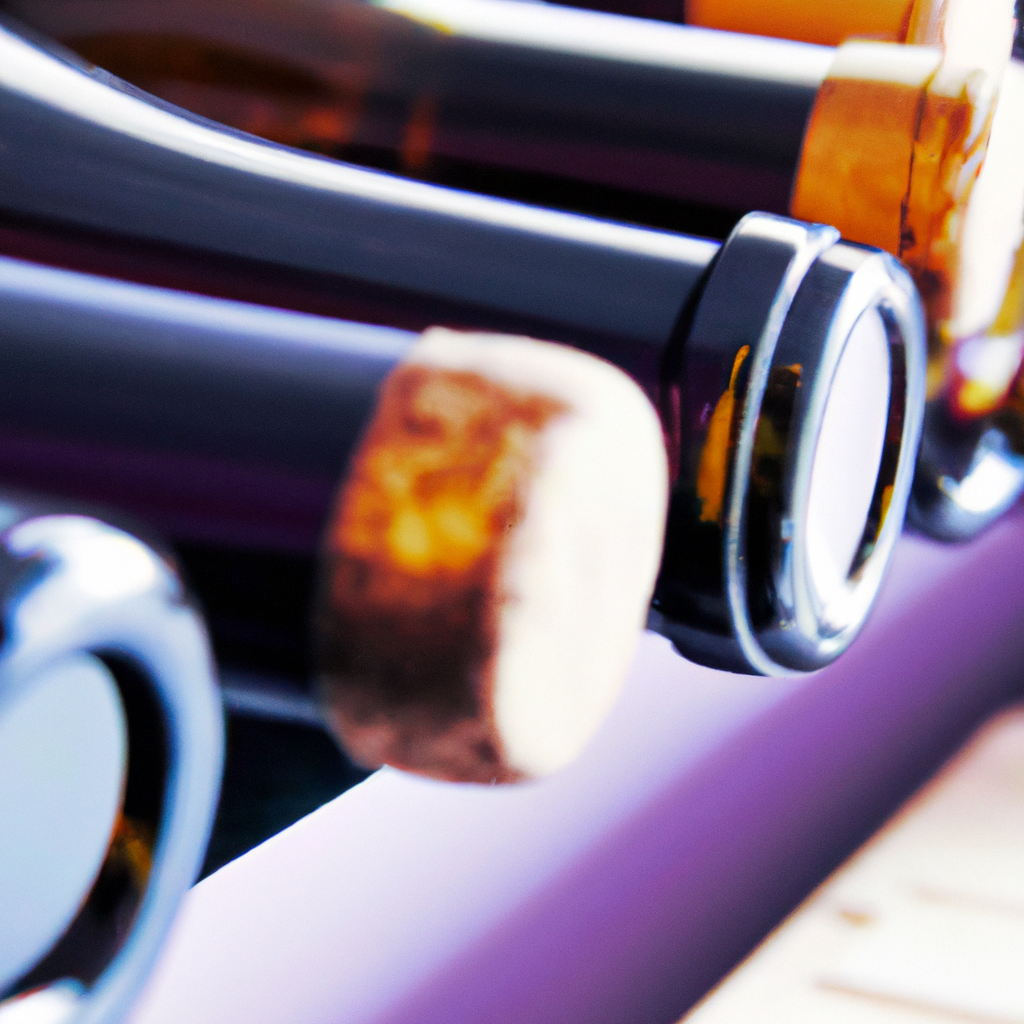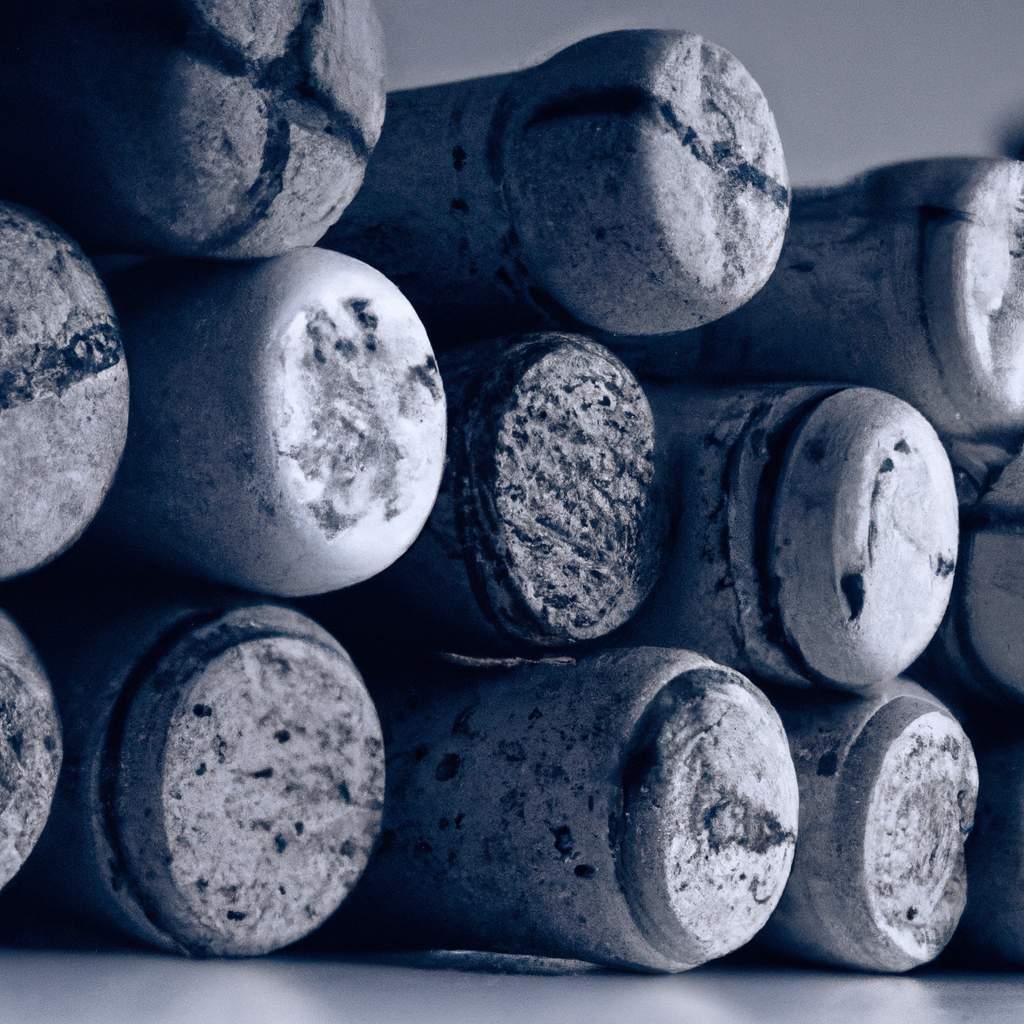
-
Article Summary
- Exploring Different Wine Closure Options
- Key Takeaways
- Introduction: The Importance of Wine Closure
- The Common Types of Wine Closures
- Cork
- Screw Cap
- Synthetic Stoppers
- Factors Influencing the Choice of Wine Closure
- Type of Wine and Aging Period
- Consumer Preference
- Environmental Considerations
- Emerging Wine Closure Technologies
- FAQ Section
- Does the type of wine closure affect the taste of wine?
- Are screw caps only for cheap wines?
- What is cork taint?
- Are synthetic stoppers good for wine?
- What are some emerging wine closure options?
- Conclusion: The Art and Science of Wine Closure
- Key Takeaways Revisited
Exploring Different Wine Closure Options

[youtubomatic_search]
Key Takeaways
- Wine closure options significantly impact the taste, aging process, and overall quality of wine.
- Cork, screw cap, and synthetic stoppers are the most common types of wine closures.
- Each closure type has its advantages and disadvantages, affecting the wine’s oxidation and maturation process.
- Consumer preference and environmental considerations also play a role in the choice of wine closure.
- Emerging technologies and innovations are providing new alternatives for wine closures.
Introduction: The Importance of Wine Closure
The choice of wine closure is a critical aspect of winemaking that goes beyond merely sealing the bottle. It plays a significant role in the wine’s aging process, taste, and overall quality. This article explores the different wine closure options, their impact on the wine, and the factors influencing the choice of closure.
The Common Types of Wine Closures
There are three main types of wine closures: cork, screw cap, and synthetic stoppers. Each has its unique characteristics, advantages, and disadvantages.
Cork
Cork is the traditional choice for wine closures, used for centuries due to its elasticity and impermeability. It allows a small amount of oxygen to interact with the wine, aiding in the aging process. However, cork can sometimes lead to ‘cork taint,’ a musty off-flavor caused by a compound called TCA (2,4,6-trichloroanisole).
Screw Cap
Screw caps, also known as Stelvin caps, have gained popularity in recent years, especially for white wines and wines meant for immediate consumption. They provide a tight seal, preventing oxygen from entering and thus reducing the risk of oxidation. However, they may not be suitable for wines intended for long-term aging.
Synthetic Stoppers
Synthetic stoppers are made from plastic compounds designed to mimic the elasticity and impermeability of cork. They eliminate the risk of cork taint but may not provide the same level of oxygen permeability as natural cork.
Factors Influencing the Choice of Wine Closure
Several factors influence the choice of wine closure, including the type of wine, intended aging period, consumer preference, and environmental considerations.
Type of Wine and Aging Period
Red wines intended for long-term aging often benefit from cork closures due to the slow oxygen ingress that aids maturation. On the other hand, white wines and wines meant for immediate consumption may be better suited to screw caps or synthetic stoppers.
Consumer Preference
Consumer perception and preference also play a role. Some consumers associate cork with higher quality wines, while others prefer the convenience of screw caps.
Environmental Considerations
Environmental sustainability is increasingly influencing the choice of wine closure. Cork is a renewable resource and biodegradable, while screw caps and synthetic stoppers have a higher carbon footprint due to their production and disposal processes.
Emerging Wine Closure Technologies
As technology advances, new alternatives for wine closures are emerging. These include glass stoppers, which provide an airtight seal and are reusable, and bio-based closures made from plant materials.
FAQ Section
Does the type of wine closure affect the taste of wine?
Yes, the type of wine closure can affect the taste of wine by influencing the amount of oxygen that interacts with the wine, which impacts the aging process and potential development of off-flavors.
Are screw caps only for cheap wines?
No, screw caps are used for a variety of wines, including premium ones. They are particularly popular for white wines and wines meant for immediate consumption.
What is cork taint?
Cork taint is a musty off-flavor in wine caused by a compound called TCA (2,4,6-trichloroanisole) that can sometimes be present in cork.
Are synthetic stoppers good for wine?
Synthetic stoppers can be a good choice for certain wines. They eliminate the risk of cork taint and provide a consistent seal. However, they may not provide the same level of oxygen permeability as natural cork.
What are some emerging wine closure options?
New alternatives for wine closures include glass stoppers and bio-based closures made from plant materials.
Conclusion: The Art and Science of Wine Closure
The choice of wine closure is both an art and a science, balancing the needs of the wine, consumer preferences, and environmental considerations. Whether it’s the traditional cork, the convenient screw cap, or the innovative synthetic stopper, each closure option has its unique role in preserving and enhancing the wine’s quality. As technology advances, we can expect to see even more alternatives emerge, further enriching the fascinating world of winemaking.
Key Takeaways Revisited
- Wine closure options significantly impact the taste, aging process, and overall quality of wine.
- Cork, screw cap, and synthetic stoppers are the most common types of wine closures.
- Each closure type has its advantages and disadvantages, affecting the wine’s oxidation and maturation process.
- Consumer preference and environmental considerations also play a role in the choice of wine closure.
- Emerging technologies and innovations are providing new alternatives for wine closures.
[youtubomatic_search]






